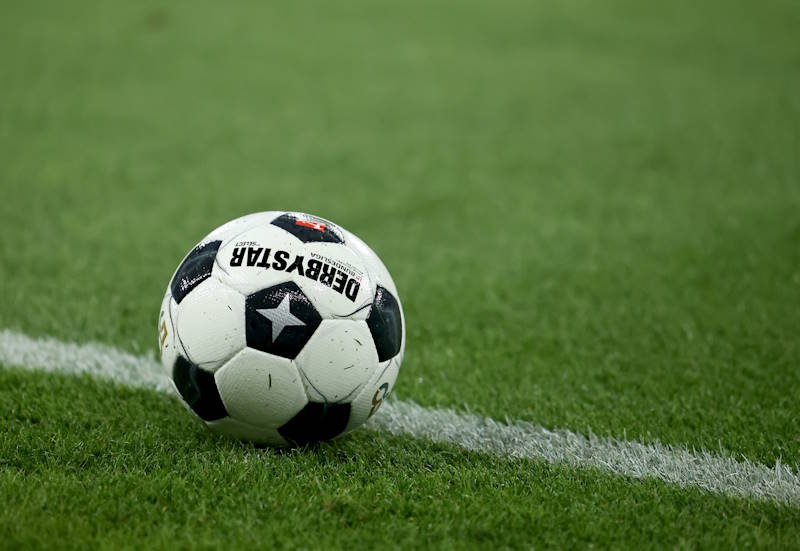
89 minutes are on the clock at the Nelson Mandela Bay Stadium in Port Elizabeth as Chile stream forward, four attackers to Switzerland’s two defenders. Esteban Parades receives the ball on the right, uses his supporting team-mates as a decoy to cut inside the defender, and with just the goalkeeper to beat fires his shot wide of the right hand post. The Chilean bench, who had collectively risen in anticipation of a second goal, slump back to their seats. All except their coach, who crouches pensively at the edge of the dugout. Marcelo Bielsa has been here before; deja vu is kicking in.
Eight years ago, Bielsa’s Argentina had swept all before them in qualification on their way to the World Cup in Japan/South Korea, topping the South American group by 12 points and scoring an average of 2.33 goals per game. But when it came to the tournament proper it all fell apart. Despite enjoying more possession, winning more corners and creating more chances than any other side come the end of the group stage, Argentina were eliminated. They had only two goals and four points to show for their efforts.
Bielsa’s Chile have already improved upon that points total, gaining six from their opening two games, but it could again be a lack of goals that comes back to haunt the coach known as ‘El Loco’. Despite dominating against both Honduras and Switzerland, Chile were only able to muster a 1-0 victory on each occasion and are now in a vulnerable position going into their final group game against Spain on Friday.
The most frustrating thing for Bielsa will be that his side have easily done enough to rack up more than two goals. Always looking to take the initiative, Chile have played some of the most impressive attacking football in South Africa. The intricate patterns woven by Alexis Sanchez, Matias Fernandez, Jean Beausejour and Jorge Valdivia alongside the thrust of Mauricio Isla and Arturo Vidal overawed Honduras, while Switzerland were never in the game once Valon Behrami was dismissed on the half hour.
The problem has come in turning 36 efforts on goal – 18 of them on target – into more than two goals. Against Honduras, Chile were often restricted to half-chances, but against Switzerland a mixture of poor finishing and inspired goalkeeping from Diego Benaglio made it a frustrating afternoon for Bielsa and his charges.
The most obvious reason for Chile’s lack of goals is the absence of Humberto Suazo at the forefront of their attack. Suazo was the top scorer in South American qualification for the World Cup, but has been restricted to just 45 minutes so far in South Africa due to a hamstring injury suffered in a pre-tournament friendly against Israel. His importance to the side cannot be underestimated. Since Bielsa took over, Chile have averaged 1.6 goals with Suazo in the team. Without him, that average falls to 1.
With Argentina, Bielsa was oft criticised for his stubborn refusal to countenance playing two up front, meaning that one of Gabriel Batistuta and Hernan Crespo was always consigned to the bench. With Chile there is no such depth of striking talent. Deploying Valdivia – usually a central playmaker – up front in Suazo’s absence has provided additional invention, but a killer instinct in front of goal is still very much lacking. The profligate Paredes is a dependable player in Chilean domestic football and a good impact substitute, but lacks the requisite skill set to be a starting lone striker at international level. Beyond him there is little else.
And thus, despite drawing plaudits for their style of play and dominating both of their two matches, Chile find themselves in a potentially precarious position going into the final round of games in Group H. Currently atop the group with six points, they face Spain, who along with Switzerland have three points to their name, knowing that a draw would be enough to secure their place in the knockout stages. If they lose then things start to get complicated.
Presuming Switzerland defeat Honduras – by no means a given, but likely nevertheless – they, Chile and Spain would be tied on six points. If Spain defeated Chile 1-0, the European Champions would be guaranteed to progress, boasting a goal difference of plus two to Chile’s plus one. If Switzerland, currently sporting zero in the goal difference column, could then win by two clear goals against Honduras they would leapfrog Chile to join Spain in the last 16.
Such a scenario is sure to be swirling around in Bielsa’s mind as he prepares his team for Friday’s game in Pretoria. A draw would suffice, but Bielsa is a coach who relies so heavily on attack that it is highly improbable he will suddenly switch to a defensive outlook in order to secure a point. Chile will stick to what they know best and Bielsa will just have to hope they can snap him out of his deja vu by delivering the goals that will allow him to exorcise the demons of 2002 once and for all.

